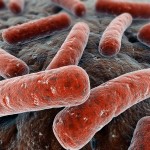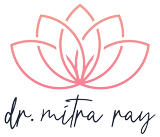I have long joked that, as humans, we are just Motherships hosting millions of microorganism passengers. But the research being done by uBiome (and many other microbiologists and biophysicists) has made it clear that I’ve been wrong: we aren’t carrying millions of bacteria and other microorganisms… we each carry more than one hundred trillion of them, and their genes outnumber our own human genes by about 360:1. Your biome is your own, unique microbial makeup, and it’s becoming evident that it is far more important to your health and longevity than your own genome (your genetic makeup).
research being done by uBiome (and many other microbiologists and biophysicists) has made it clear that I’ve been wrong: we aren’t carrying millions of bacteria and other microorganisms… we each carry more than one hundred trillion of them, and their genes outnumber our own human genes by about 360:1. Your biome is your own, unique microbial makeup, and it’s becoming evident that it is far more important to your health and longevity than your own genome (your genetic makeup).
Your biome is your own, unique microbial makeup, and it’s becoming evident that it is far more important to your health and longevity than your own genome (your genetic makeup). The microbes in and on our bodies do everything from helping digest food to preventing infections. They are also responsible for illness and disease, implicated in such disparate ailments as heart disease, multiple sclerosis, depression, and cavities (and just about any other disease or disorder that you can think of). They are in your mouth, on your skin, in your gut, and they are the products of your internal environment. And they aren’t just bacteria; our bodies are loaded with viruses and even fungi.
Microorganisms represent the majority of life on Earth, and they exist on and in every living tissue, in every creature, and there are a great many of them without which we couldn’t survive. One highly common bacterium (existing in about half the guts on the planet), H. pylori, both causes ulcers and seems to protect against asthma. Whether a microbe is harmful or helpful may be determined by factors such as their total population or location in the tissue.
So if a microbe, and not stress, can cause ulcers, what does that mean for other common ailments like arthritis, obesity, diabetes, Alzheimer’s, or autism? This is still considered a new and wide-open field of science, but the research being done is already remarkable. Microbiologists are engaging in what has been dubbed medical ecology, and that’s a pretty accurate name for what they’re working on. Selectively fostering beneficial bacteria is one area that has long been studied; many of us have taken probiotic supplements, or eaten yogurt or sauerkraut in efforts to repopulate our gut bacteria after a course of antibiotics. More sophisticated efforts are being attempted as scientists try to determine how to positively influence the interchange between all of our various microbes. Given that we’ve got trillions, it seems unlikely that there will be protocols for managing the vast majority of them. Understanding more about how they work with one another, and with our own cells, is the first step.
I read an article about the uBiome several months ago, and have since donated to their research. Watch this 3-minute video to learn more about the vital and exciting work that they are doing, and consider having your own biome analyzed: I will keep you posted on when they make their next offering, as the first round of ubiome tests ended a short while ago.
